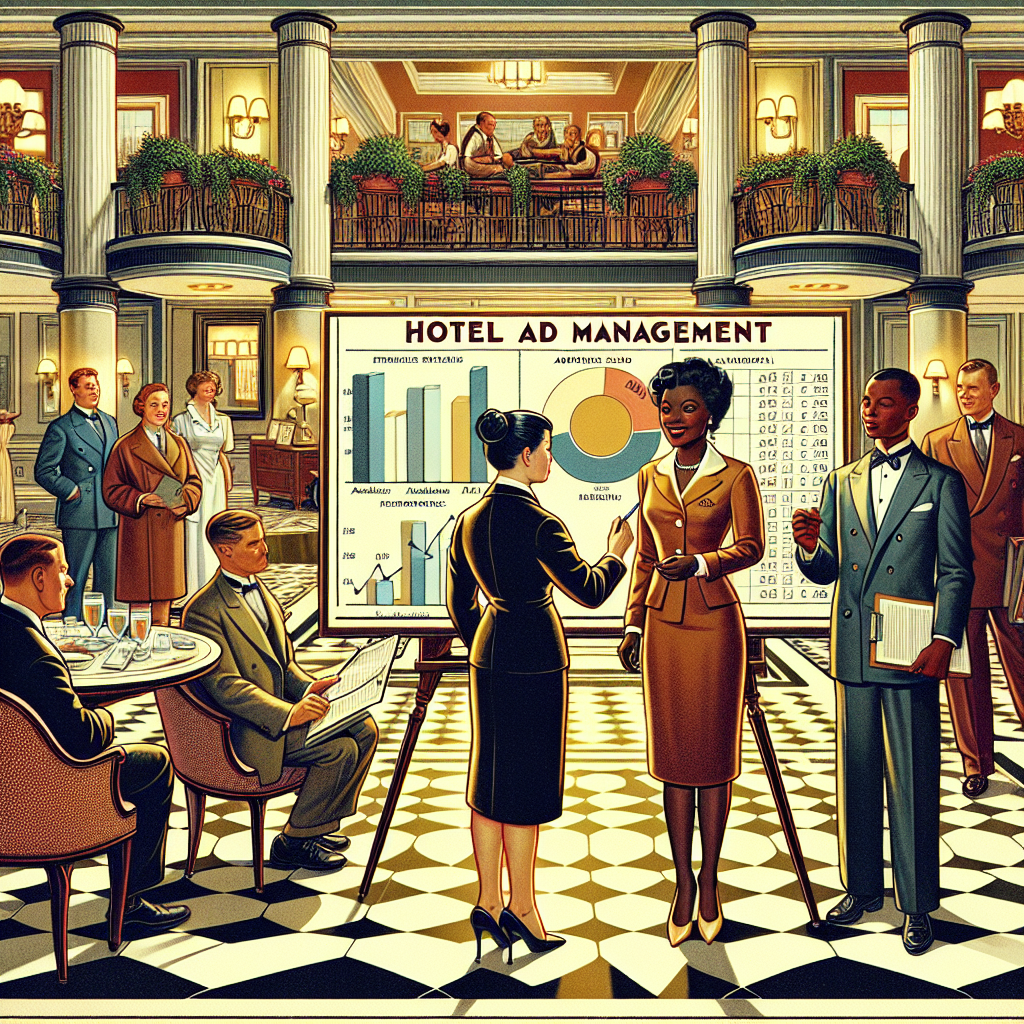Hotel Ad Management: Maximizing Revenue and Visibility
In the competitive hospitality industry, effective hotel ad management is crucial for driving bookings and maximizing revenue. This blog post explores the key strategies and tools involved in hotel ad management, drawing insights from various sources to provide a comprehensive guide for hoteliers.
Understanding Hotel Ad Management
Hotel ad management involves the strategic planning, execution, and optimization of advertising campaigns to promote a hotel’s services and attract potential guests. With the rise of digital marketing, this process has become increasingly complex, requiring a mix of creativity, data analysis, and technical know-how.
Key Strategies for Effective Hotel Ad Management
1. Target Audience Segmentation
Understanding your target audience is fundamental to any successful ad campaign. Segmenting your audience based on demographics, behavior, and preferences allows you to tailor your ads to meet their specific needs. This increases the likelihood of engagement and conversion.
2. Utilizing Multiple Advertising Channels
To maximize reach, it’s essential to leverage multiple advertising channels. These can include:
- Search Engine Marketing (SEM): Utilizing platforms like Google Ads to appear in search results when potential guests are looking for accommodation.
- Social Media Advertising: Platforms like Facebook, Instagram, and LinkedIn offer targeted advertising options that can reach specific demographics.
- Display Advertising: Using banner ads on relevant websites to capture the attention of potential guests.
3. Dynamic Pricing and Real-Time Bidding
Dynamic pricing involves adjusting room rates based on demand, competition, and other external factors. Real-time bidding (RTB) allows hotels to bid for ad placements in real-time, ensuring that their ads are shown to the right audience at the right time.
4. Retargeting Campaigns
Retargeting involves showing ads to users who have previously visited your website but did not make a booking. This keeps your hotel top-of-mind and encourages potential guests to return and complete their booking.
Tools and Technologies in Hotel Ad Management
1. Ad Management Platforms
Platforms like Google Ads and Facebook Ads Manager provide robust tools for creating, managing, and optimizing ad campaigns. These platforms offer detailed analytics and reporting features that help hoteliers track the performance of their ads and make data-driven decisions.
2. Customer Relationship Management (CRM) Systems
CRM systems help hotels manage their interactions with current and potential guests. By integrating CRM data with ad management platforms, hotels can create highly personalized ad campaigns that resonate with their audience.
3. Revenue Management Systems (RMS)
RMS tools help hotels optimize their pricing strategies by analyzing market demand, competition, and historical data. Integrating RMS with ad management can ensure that your ads are promoting the right offers at the right time.
Measuring the Success of Hotel Ad Campaigns
To determine the effectiveness of your ad campaigns, it’s essential to track key performance indicators (KPIs) such as:
- Click-Through Rate (CTR): The percentage of users who click on your ad after seeing it.
- Conversion Rate: The percentage of users who complete a booking after clicking on your ad.
- Return on Ad Spend (ROAS): The revenue generated from your ad campaigns compared to the amount spent on advertising.
Challenges in Hotel Ad Management
Despite the benefits, hotel ad management comes with its own set of challenges:
- High Competition: The hospitality industry is highly competitive, making it difficult to stand out.
- Budget Constraints: Effective ad campaigns require investment, which can be a challenge for smaller hotels.
- Rapidly Changing Technology: Keeping up with the latest digital marketing trends and technologies can be overwhelming.
Conclusion
Effective hotel ad management is essential for attracting guests and maximizing revenue. By understanding your target audience, leveraging multiple advertising channels, and utilizing the right tools and technologies, you can create successful ad campaigns that drive bookings and enhance your hotel’s visibility. As the digital landscape continues to evolve, staying informed and adaptable will be key to maintaining a competitive edge in the hospitality industry.
For more information and resources on hotel ad management, visit [example URL].
This blog post provides a detailed overview of hotel ad management, incorporating insights from various sources to offer practical strategies and tools for hoteliers. By following these guidelines, you can optimize your advertising efforts and achieve greater success in the competitive hospitality market.


